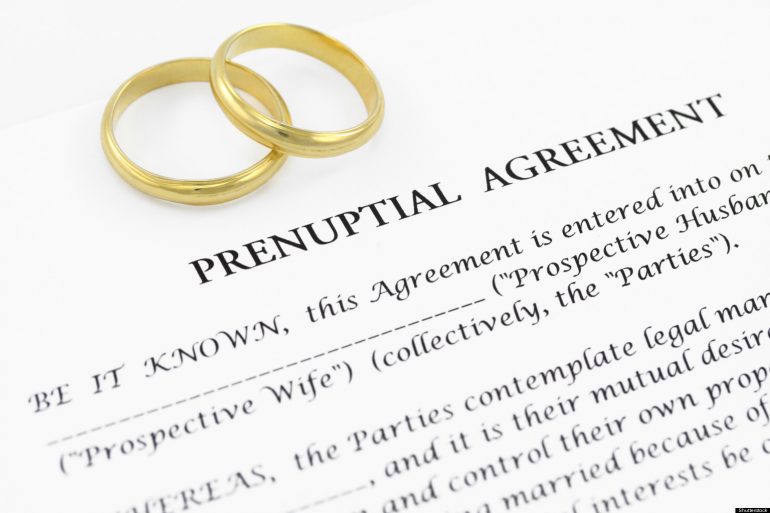You’re getting married and it’s a wonderful time in your life. It’s also the time to think about a prenuptial agreement, commonly called a prenup. It’s a contract you and your betrothed enter into before marrying. Depending on both your circumstances, the details can vary widely, but here are five things to note about a premarital agreement.
1 – Premarital agreement laws will vary between states in the US, so it’s important to take a look at the laws in the state you plan to marry. Also, the enforcement of a prenup varies if the need should ever arise, so having different lawyers for each party to prepare and oversee the signing of a prenup is important.
2 – Prenups cannot regulate issues of children of your marriage. This currently applies to all 50 states in the US. The reasoning is, if a separation or divorce should take place, the situation at hand needs to be assessed by the court to determine issues such as child custody and support. Due to this timeframe, a prenup can’t determine resolutions prior to marriage.
3 – Prenup agreements can specify financial issues, and the terms will likely be upheld if ever contested. These issues include alimony, division of assets, cash settlements and waivers of rights to the other party’s assets.
4 – Consider adding a sunset provision specifying when/if a prenup agreement expires. This helps you enter into an agreement that protects against a short-term marriage, but as time passes or circumstances change, the agreement expires. In some states, the prenup automatically ends once a child is born, unless you renew it.
5 – Laws that govern divorce fall into two types, and depend on the state – equitable distribution or community property. Since the prenup may not be designed for one type, it’s important to use lawyers who are familiar with both types, so depending on where you live should the marriage dissolve, the prenup applies. For example, if you marry in California and your prenup is made for only community property laws and you are divorcing in an equitable distribution state, you are now in murky legal territory. Consider a “choice of law” provision to keep terms clear no matter what state the divorce may occur.
It’s hoped that a prenup will never have to be enforced. Marriage is a time of hope and new beginnings. As we all know, marriage doesn’t last for everyone, even with the best of good intentions. With this in mind, a prenup to protect yourself and your family is an idea to be considered and discussed with an attorney.

